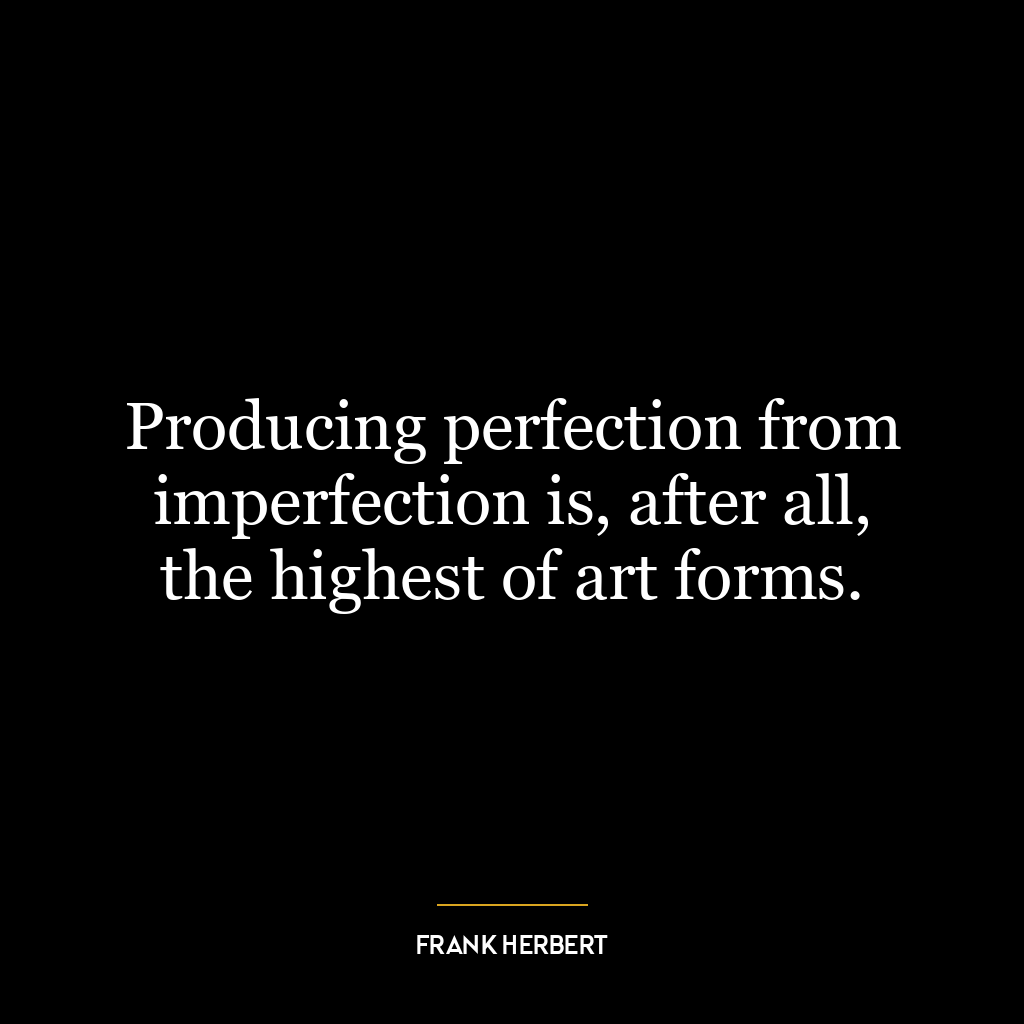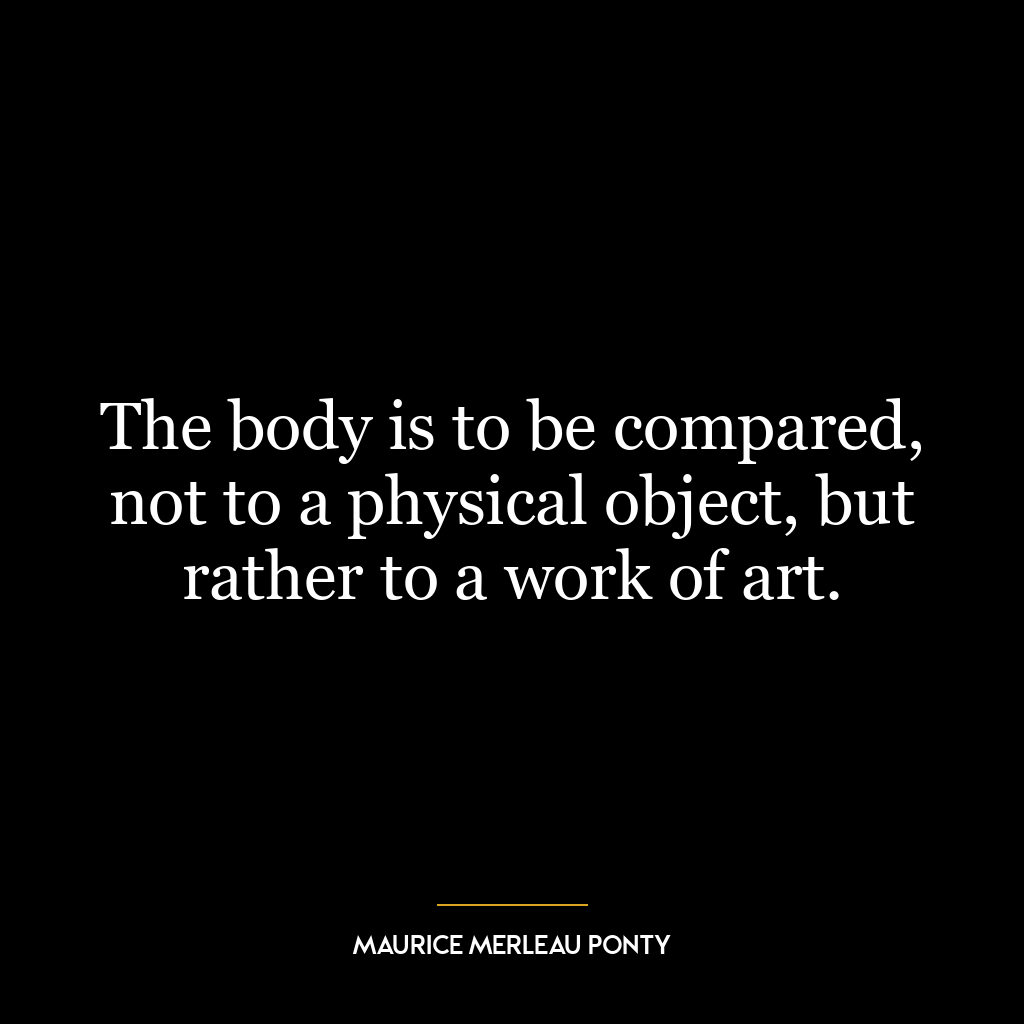While real perfection is only one, relative perfections must be many.
This quote refers to the concept of perfection and its subjective nature. Real perfection, according to this quote, is singular – it is absolute and unchanging. This could be interpreted as the ultimate truth or the highest form of reality that exists beyond our everyday perceptions. It might also be seen as an ideal state of being or consciousness that one strives for – such as enlightenment in many spiritual traditions.
On the other hand, relative perfections are multiple because they depend on individual perspectives, contexts, and standards. They vary from person to person and culture to culture. What one person sees as perfect may not be seen in the same light by another.
In today’s world, we often find ourselves chasing after these relative perfections – trying to live up to societal standards or personal expectations that keep shifting and evolving over time. We strive for perfect bodies, perfect careers, perfect relationships etc., often forgetting that these notions of perfection are subjective.
In terms of personal development, this idea suggests a shift in focus from striving for external validation through achieving relative perfections towards seeking real perfection – finding our own truth and understanding our unique purpose in life. It encourages us to question societal norms about what constitutes a ‘perfect’ life and instead discover what feels most authentic and fulfilling for us individually.
Understanding this difference between real perfection (which is internal) versus relative perfections (which are external) can lead us towards greater self-awareness and ultimately more meaningful growth.









